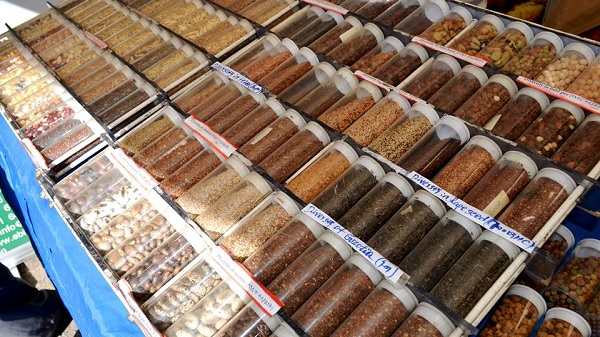
By partnering with local farmers, the Ethiopian Biodiversity Institute (EBI) “stores” a minimum of 40,000 varieties by keeping them alive and growing in fields.
By Eric J. Wallace (Atlas Obscura)
Housed in the nondescript buildings of the Ethiopian Biodiversity Institute (EBI) are a series of cryogenic vaults that, together, contain the largest and most important collection of plant seeds in sub-Saharan Africa. Located in the capital city of Addis Ababa, the facility stores seeds for more than 62,000 varieties of native plants related to horticultural production alone.
When it was founded in the early-1980s, the EBI became the world’s first living seed bank. This is in contrast to the Svalbard Global Seed Vault, which is housed underneath thick ice not far from the North Pole, and is essentially a bunker meant to protect seedstocks against global calamity. By partnering with local farmers, the EBI instead “stores” a minimum of 40,000 additional varieties by keeping them alive and growing in fields.
“From a global perspective, the single focus of gene banks seems to be on collecting and preserving whatever samples they can find, and they call that conservation,” agronomist Melaku Worede, PhD, told an interviewer in 2009. The 82-year-old helped found the EBI and received a Right Livelihood Award (commonly known as the Alternative Nobel) for his work as its first director. “We, on the other hand, believe in conservation through use, in keeping diversity alive as you use it.”
Dr. Melaku Worede says the approach is particularly important for a developing nation like Ethiopia, which features a cornucopia of native crop diversity. As one of the world’s eight primordial hotbeds of agriculture, the country is recognized by horticulturalists as a Vavilovian Center of Diversity. The distinction is awarded to regions that first developed and subsequently disseminated some of the world’s most important domesticated crops.
“For millennia, the insulation and natural interconnectivity of indigenous farming communities in Ethiopia both protected and led to the creation of tremendous crop diversity,” says agronomist Henk Hobbelink, 62. Co-founder of the international nonprofit GRAIN, he has spent the past 30 years working with small farmers to preserve global crop diversity.
Read the complete story at Atlas Obscura
